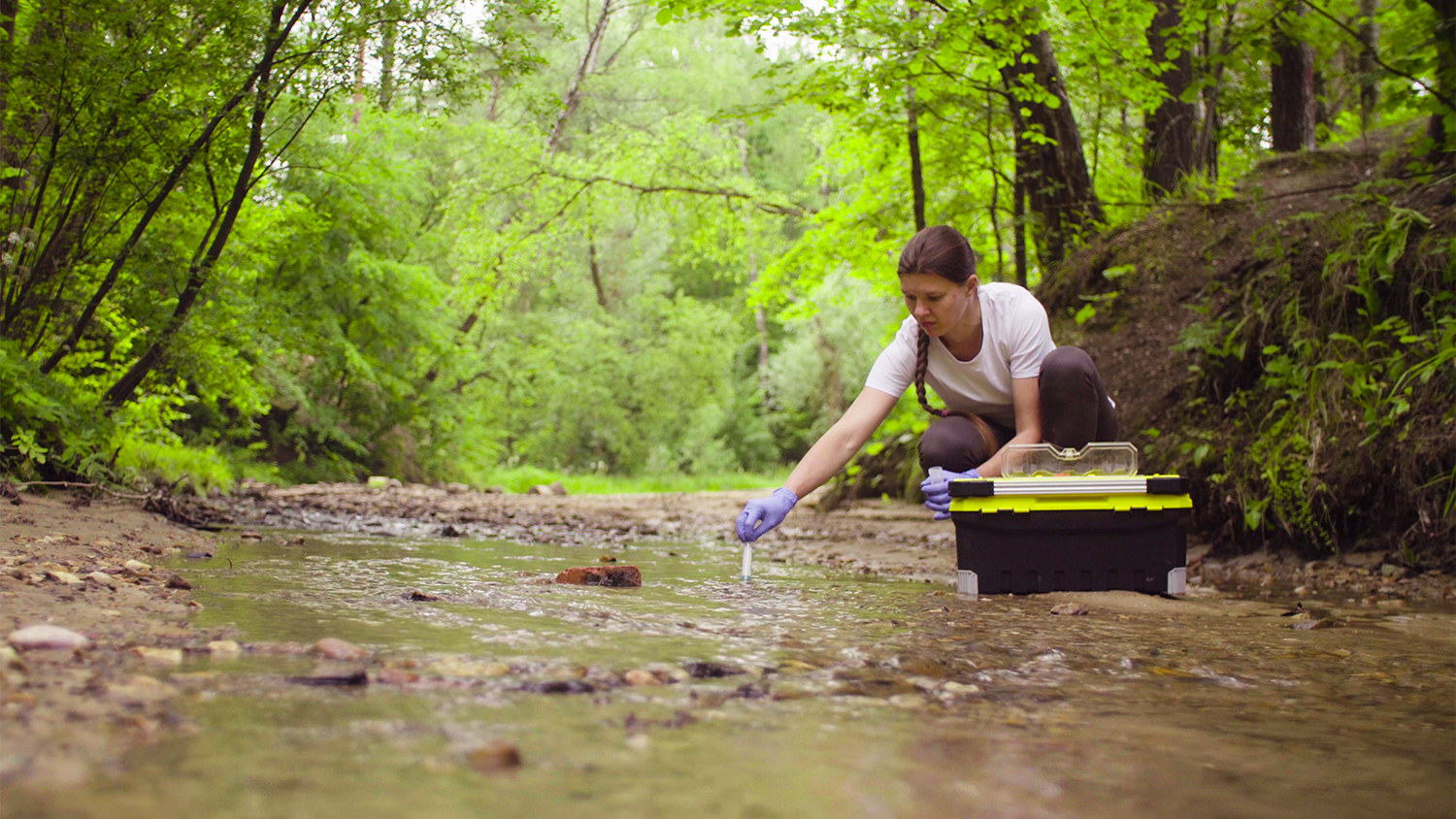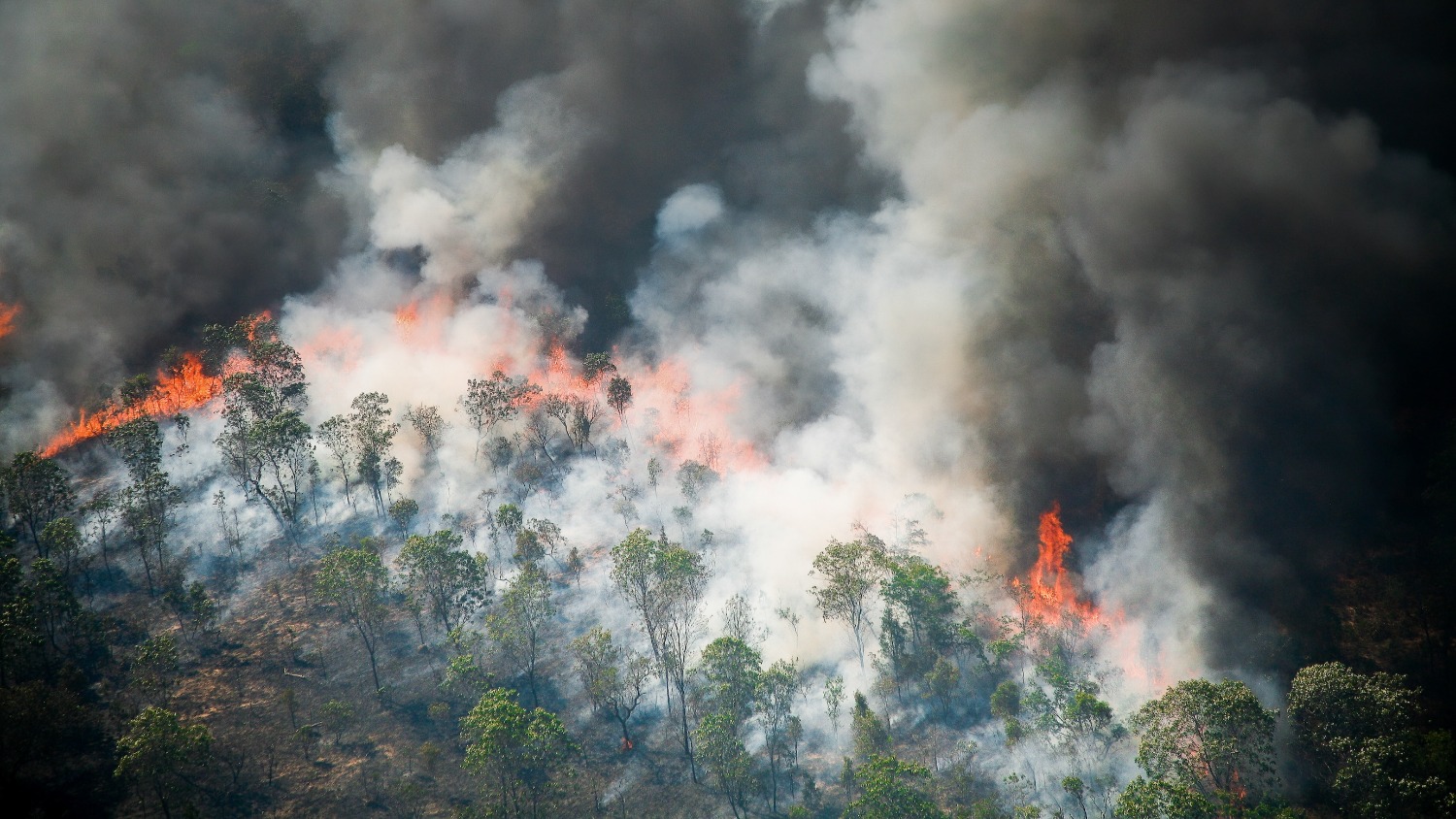What Can I Do With an Environmental Science Degree?

Adapting to climate change, advancing sustainability and predicting environmental policy outcomes are vital issues that call for environmental experts. Students wondering, “What can I do with an environmental science degree?” have many job options available after graduation and are often in high demand across various industries. Upon graduation, our environmental science students choose to pursue careers in the field with private industry sectors or the government or continue their research at the graduate level.
What is Environmental Science?
Environmental science is the study of the interactions between physical, chemical and biological components of the Earth’s natural environment. These components include energy, agriculture, water and air. Environmental science closely examines the human impact on the environment.
Students interested in this field enjoy spending time outdoors and exploring their natural surroundings. If you are passionate about understanding, preserving and protecting the environment, a major in environmental science may be the perfect fit for you.
How to Become an Environmental Scientist
The Environmental Sciences program at NC State’s College of Natural Resources prepares students to become environmental experts through an interdisciplinary approach to the study of the environment and hands-on internships. Students who enroll in the program provided by the Department of Forestry and Environmental Resources will take a variety of major-specific courses, from “Climate Change and Sustainability” to “Analysis of Environmental Issues.” Students can customize their degree by choosing an existing minor or designing their own 15-credit hour focal area. Check out our semester-by-semester curriculum plan.
Some popular focal areas include:
- Biotechnology
- Environmental Communications
- Energy Conservation
- Environmental Engineering and Design
- Environmental Modeling
- Environmental Toxicology
- Renewable Energy
- Technology and Society
Students enrolled in the program can choose from various minor-based areas, such as:
- Anthropology
- Applied Ecology
- Biological Sciences
- Business Administration
- Economics
- Entomology
- Forest Management
- Geology
- Landscape Architecture
- Meteorology
- Microbiology
- Political Science
- Soil Science
- Spanish
- Wildlife Sciences
To further prepare students for an environmental career, the College of Natural Resources requires students to receive external learning, including hands-on internships. These internships can involve the management and analysis of food loss in the hospitality industry, habitat restoration, and the development of habitat management plans for solar farms.
Students can gain valuable internship experiences by working with local companies and institutions, such as the NC Clean Energy Technology Center, the North Carolina Museum of Natural Sciences and RTI International. Students interested in gaining experiences in the field can also work with a wide variety of government agencies. Many of these opportunities can be found within 20 minutes from NC State’s campus.
What Can I Do With An Environmental Science Degree?
Students who graduate from our program have a variety of career options, with the environmental industry continuing to grow each year. The environmental industry generates more than $265 billion and more than 125,000 new positions annually in the United States.
Below are some popular careers students enrolled in a environmental science degree program pursue:
- Water Conservationist – Conserve, identify threats, mitigate the water supply and identify potential environmental health problems. Recent employers include the U.S. Army Corps of Engineers and the US Forest Service.
- Environmental Planner – Minimize the environmental impacts of urban and regional development, focusing on environmental regulation and sustainability. Recent employers include city and state governments.
- Policy Analyst – Provide analytical and research services for policy briefs related to the environment. Recent employers include RTI International.
- Energy Manager – Evaluate energy use, design and manage energy efficiency projects and plan new energy initiatives to maximize energy conservation. Recent employers include Duke Energy.
- Sustainability Consultant – Promote and help businesses develop an environmental conscience, reduce costs and promote sustainable solutions for the environment and businesses. Recent employers include Interface USA.
- Environmental Scientist – Research environmental and health problems and minimize or eliminate them through policy recommendations and reducing industry pollution and waste. Recent employers include the National Parks Service.
Check out environmental job opportunities listed on our Forestry and Environmental Resources Job Board.
Real Life Examples of Environmental Science Degree Jobs and Careers
Alumni go on to pursue further education and have successful careers in the environmental industry. Check out some of their stories below:
- Meet Alyssa Quackenbush, a recent graduate pursuing a master’s in Marine Sciences
- Meet Spencer Stone, a master’s student with a passion for landscape architecture
- Meet Danny Marulanda, a 2018 graduate passionate about creating a more sustainable future
Helpful Information About Environmental Science Degree Jobs and Careers
- What to Do With an Environmental Science Degree
- Environmental Scientists and Specialists | U.S. Bureau of Labor Statistics
- Environmental Careers Guide | BestColleges
- Careers in Environmental Science | EnvironmentalScience.org
- Careers | United States Environmental Protection Agency
- Jobs | N.C. Environmental Education
- Current Job Openings | North Carolina Association of Environmental Professionals
- Environmental Science | North Carolina Biotechnology Center Company Directory


